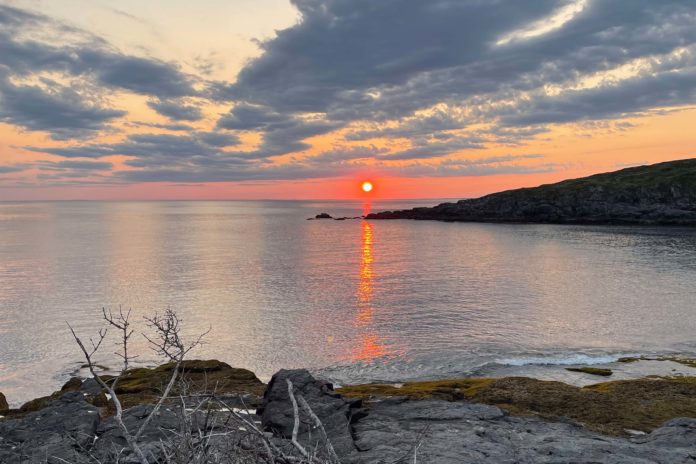I have a complicated relationship with my home.
I grew up in a small blue house on the coast of Maine. The house is tucked into the woods, but it is only a short five-minute walk to the ocean.
When I think of home, I think of that walk. I think of the summer nights running down the middle of the road and lying on the sand watching the stars slip past. Even now, the sound of crashing waves and the smell of salt brings me a deep sense of calm.
Scarborough, Maine is a small and tight-knit community where my neighbours all knew me and my mother’s telephone number in case I ever got in trouble. I spent my childhood climbing mountains and biking around my home state’s incredible, natural beauty.
My family lived in Maine for nine generations, but it is much longer if you follow the lineage of my Algonquin ancestors. Our family’s history traces the story of immigration and colonization and the struggle between the two which is inherent to the history of the United States.
Yet, despite my deep love for where I come from and for the strength of the people who raised me, I would not consider myself a particularly “patriotic” American.
Even as a child, my family’s love for travel showed me the importance of experiencing things and people outside of my bubble. When I traveled with my parents, they always reminded me to tell people we were Canadian, because it was safer for us, especially in countries that had been negatively impacted by America’s foreign policy.
One of the biggest problems for most Americans is that they never leave home — if they do, they carry with them the idea that everything else is weird and they are the normal ones. And why wouldn’t they?
When you grow up in the U.S., you believe that you live in the best country on Earth.
You sing songs with lyrics like “I’m proud to be an American where at least I know I’m free and I won’t forget the men who died who gave that right to me.” You spend every morning of public school reciting the pledge of allegiance and learning about how racism ended with Martin Luther King Jr.’s “I have a dream” speech.
What we don’t learn is that the “men who died” were Indigenous Peoples murdered by colonizers. Or that the flag we pledge allegiance to does not represent liberty and justice for all.
It is only in leaving the United States that you can see it for what it truly is — a fractured, complicated place held together only by its population’s belief in its superiority. If we let go of that, even for a second, we must question and deconstruct every piece of it.
For me, that moment of deconstruction came on Jan. 6, 2021. I was in mandatory self-isolation after returning to Canada from Christmas at home. I sat in my room, alone, watching as everything I thought I knew about my country fell apart.
For all of the ugliness of the Trump presidency, I never imagined that he would instigate this level of violence. For all of his faults, I thought he still believed, even if it was selfishly, in the American Dream.
I was wrong.
When I saw the men storm into the Capitol buildings and plant themselves victoriously in the very heart of our democracy, I thought of my mother and the go-bag she packed the day Trump was elected. I thought of myself, laughing at her when she expressed relief that I was leaving the U.S. for university. I remember her saying, “I just think it’s safer for you.”
There is a kind of dissociation in watching your country fracture from afar. It doesn’t feel quite real. You feel like this isn’t really your country; it has to be some other place. Things like that don’t happen here, but they do.
Now a year later, as I finish my final year of undergraduate studies, I watch the “freedom convoy” make their journey across Canada and something about it feels terrifyingly familiar.
I am sure there are Canadians who feel the same way I did just over a year ago. I wish I could give them some words of comfort or some beautiful sentiment of hope and peace, but the best I can offer is understanding.

